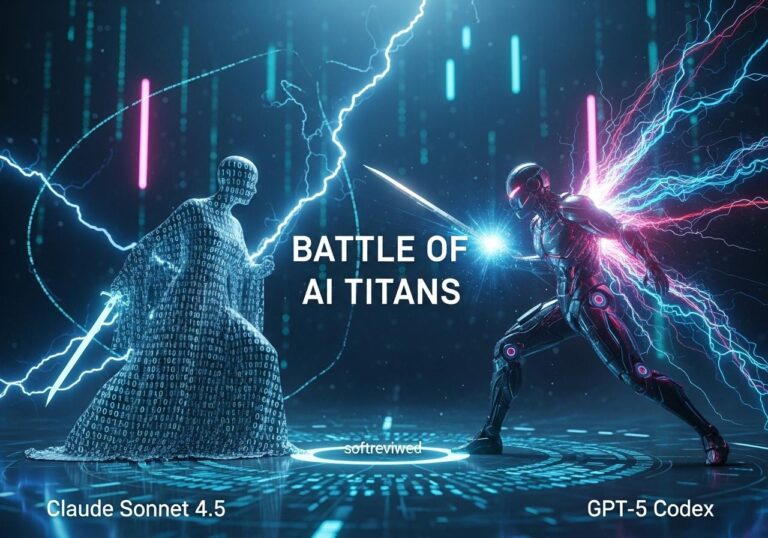📈 Emmes Group Partners with Miimansa AI
Accelerating the adoption of generative AI in clinical research.
🚀 Creating Advanced Capabilities
The partnership focuses on creating capabilities for quickly and accurately processing vast amounts of clinical data.
🔍 Automated Text Processing
The technology will enable advanced automated text processing solutions for tasks like protocol authoring and medical writing.
⚡ Accelerating Clinical Trials
Generative AI will accelerate the development of state-of-the-art clinical trials, making them faster, better, and more efficient.
The landscape of clinical research is on the cusp of a major shift, thanks to the groundbreaking partnership between Emmes Group and Miimansa AI. This collaboration aims to harness the power of generative artificial intelligence (AI) to streamline and enhance the clinical research process. But what does this mean for the future of healthcare, and how will it impact the way we conduct clinical trials? Let's explore this exciting development in depth.
The Emmes Group and Miimansa AI Partnership: A Game-Changing Alliance
Emmes Group, a leading tech-enabled global contract research organization (CRO), has joined forces with Miimansa AI, a health tech startup specializing in large language models for biomedical research and clinical data management. This partnership marks a significant milestone in the integration of advanced AI techniques into clinical research.
The primary goal of this collaboration is to develop capabilities for rapid and accurate processing of clinical data, utilizing cutting-edge large language modeling (LLM) techniques and generative AI. By acquiring Miimansa's Clinical Entity Modeling tools, Emmes Group is positioning itself at the forefront of AI-driven clinical research.
Key Objectives of the Partnership
- Accelerate the adoption of generative AI in clinical research
- Develop automated text processing solutions for clinical trials
- Enhance the efficiency and accuracy of clinical data processing
- Reduce time and costs associated with manual data handling and analysis
- Improve the overall quality and speed of clinical trials
The Impact of Generative AI on Clinical Research

Generative AI has the potential to revolutionize various aspects of clinical research. Here's how this technology is set to transform the industry:
1. Data Processing and Analysis
One of the most significant advantages of generative AI in clinical research is its ability to process and analyze vast amounts of data quickly and accurately. This capability can dramatically reduce the time required for data analysis, allowing researchers to draw insights and make decisions faster.
2. Protocol Authoring and Medical Writing
Generative AI can assist in creating clinical trial protocols and medical writing tasks. By automating these processes, researchers can focus more on strategic aspects of trial design and execution.
3. Patient Recruitment and Retention
AI algorithms can help identify suitable candidates for clinical trials more efficiently, potentially improving recruitment rates and reducing dropout rates by matching patients with the most appropriate studies.
4. Real-time Monitoring and Safety Assessments
AI-powered systems can continuously monitor trial data, flagging potential safety issues or adverse events in real-time, enabling faster responses and improved patient safety.
5. Predictive Analytics
Generative AI can analyze historical data to predict potential outcomes, helping researchers optimize trial design and resource allocation.
The Technology Behind the Partnership
At the heart of the Emmes Group and Miimansa AI partnership lies advanced large language modeling (LLM) techniques. These sophisticated AI models are capable of understanding and generating human-like text, making them invaluable for processing and analyzing complex clinical data.
Clinical Entity Modeling
Miimansa's Clinical Entity Modeling tools, now acquired by Emmes Group, play a crucial role in this partnership. These tools use AI to identify and extract relevant information from unstructured clinical data, such as medical records, research papers, and trial protocols.
Text-to-Text Transformations
One of the key focus areas of the partnership is developing automated text processing solutions. These solutions can transform various types of text-based information, such as:
- Converting raw clinical data into structured reports
- Generating summaries of research findings
- Creating draft protocols based on study requirements
- Producing initial versions of medical writing documents
Benefits of AI-Driven Clinical Research
The integration of generative AI into clinical research offers numerous advantages:
Increased Efficiency: AI can process data and perform tasks much faster than humans, significantly reducing the time required for various research phases.
Cost Reduction: By automating many time-consuming tasks, AI can help reduce the overall cost of conducting clinical trials.
Improved Accuracy: AI systems can analyze data with a level of precision and consistency that's difficult for humans to match, potentially reducing errors in data interpretation.
Enhanced Decision-Making: With faster access to insights from data analysis, researchers can make more informed decisions throughout the trial process.
Accelerated Drug Development: By streamlining various aspects of clinical trials, AI can help bring new treatments to market more quickly.
Personalized Medicine: AI can help identify patterns and correlations in patient data, potentially leading to more personalized treatment approaches.
Challenges and Considerations
While the potential benefits of generative AI in clinical research are significant, there are also challenges and considerations to address:
Ethical Concerns
The use of AI in healthcare raises important ethical questions, particularly regarding data privacy and the potential for bias in AI algorithms.
Regulatory Compliance
Ensuring that AI-driven clinical research meets all regulatory requirements will be crucial for widespread adoption.
Data Quality and Standardization
The effectiveness of AI systems depends on the quality and standardization of the data they process. Ensuring high-quality, standardized data across different research sites and studies can be challenging.
Human Oversight
While AI can automate many tasks, human oversight remains essential to ensure the validity and safety of clinical research.
Skills Gap
As AI becomes more prevalent in clinical research, there's a growing need for professionals who understand both clinical science and AI technologies.
The Future of Clinical Research with Generative AI
The partnership between Emmes Group and Miimansa AI is just the beginning of what promises to be a transformative era in clinical research. As AI technologies continue to advance, we can expect to see:
- More widespread adoption of AI tools across the clinical research industry
- Increased integration of AI with other emerging technologies, such as blockchain and the Internet of Things (IoT)
- Development of more sophisticated AI models specifically tailored for clinical research applications
- Greater emphasis on AI education and training for clinical research professionals
- Evolution of regulatory frameworks to keep pace with AI advancements in healthcare
Expert Insights
Dr. Vibhu Agarwal, founder and CEO of Miimansa AI, shared his thoughts on the partnership:
"Teaming up with Emmes Group is a significant milestone for us. Their expertise and comprehensive clinical trial data offer a unique opportunity to apply our advanced AI techniques in real-world settings."
This sentiment underscores the potential for synergy between AI technology providers and established clinical research organizations.
Preparing for the AI-Driven Future of Clinical Research
As generative AI continues to reshape the clinical research landscape, it's crucial for professionals in the field to stay informed and adapt. Here are some steps to prepare for this AI-driven future:
Continuous Learning: Stay updated on the latest AI developments and their applications in clinical research.
Skill Development: Consider acquiring skills in data science and AI to complement your clinical expertise.
Embrace Collaboration: Be open to working alongside AI systems and view them as tools to enhance your capabilities rather than as replacements.
Ethical Considerations: Engage in discussions about the ethical implications of AI in healthcare and contribute to developing responsible AI practices.
Advocate for Standards: Support efforts to establish industry-wide standards for AI use in clinical research to ensure consistency and reliability.
Conclusion
The partnership between Emmes Group and Miimansa AI represents a significant step forward in the integration of generative AI into clinical research. As this technology continues to evolve, it has the potential to dramatically improve the efficiency, accuracy, and speed of clinical trials, ultimately leading to faster development of new treatments and improved patient outcomes.
While challenges remain, the future of clinical research looks bright, with AI poised to play an increasingly central role. By staying informed, adapting to new technologies, and addressing ethical concerns proactively, the clinical research community can harness the full potential of generative AI to advance medical science and improve global health.
As we move forward, it's crucial to maintain a balance between technological innovation and human expertise. The goal is not to replace human researchers but to empower them with powerful tools that can accelerate discovery and improve the quality of clinical research. The Emmes Group and Miimansa AI partnership is just the beginning of what promises to be an exciting new chapter in the history of medical research.
Read more about the partnership between Emmes Group and Miimansa AI
Stay tuned for further developments in this rapidly evolving field, and consider how you can contribute to and benefit from the AI revolution in clinical research. As advances in AI in healthcare continue to accelerate, the potential for improved patient outcomes and streamlined clinical trials grows exponentially. By staying informed and integrating cutting-edge technologies into your own research or practice, you can play an active role in shaping the future of healthcare. Now is the time to explore new ways to leverage AI tools to enhance precision, efficiency, and innovation in clinical research.
Emmes Group and Miimansa AI Partnership: Enhancing Clinical Research Efficiency
The chart illustrates Emmes Group’s areas of expertise and their focus in various clinical research sectors.







